View the Products and Let's Talk.
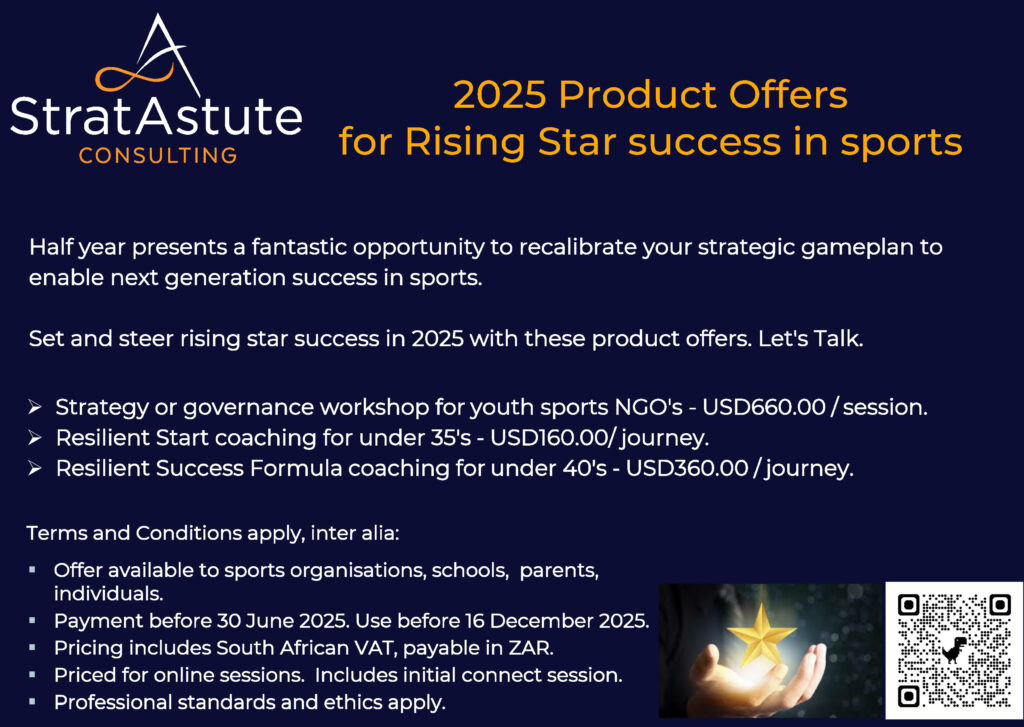
As adults, saying "Yes" to serve in the best interests of one's organisation, clients, career, relationships and community carries inherent trade-offs. Over time, the "tipping" effect leads to rolling hindsight gaps, evergreen in the mind.
Look closely into your own review mirror to find the prospective threads of progress:
1) Understand the story.
2) Evaluate the impact/influence to date.
3) Lift the lessons.
4) Acknowledge the experiential upside.
5) Reframe the "should haves" to "I choose to...".
Know and transcend your blind spots. Let's Talk.
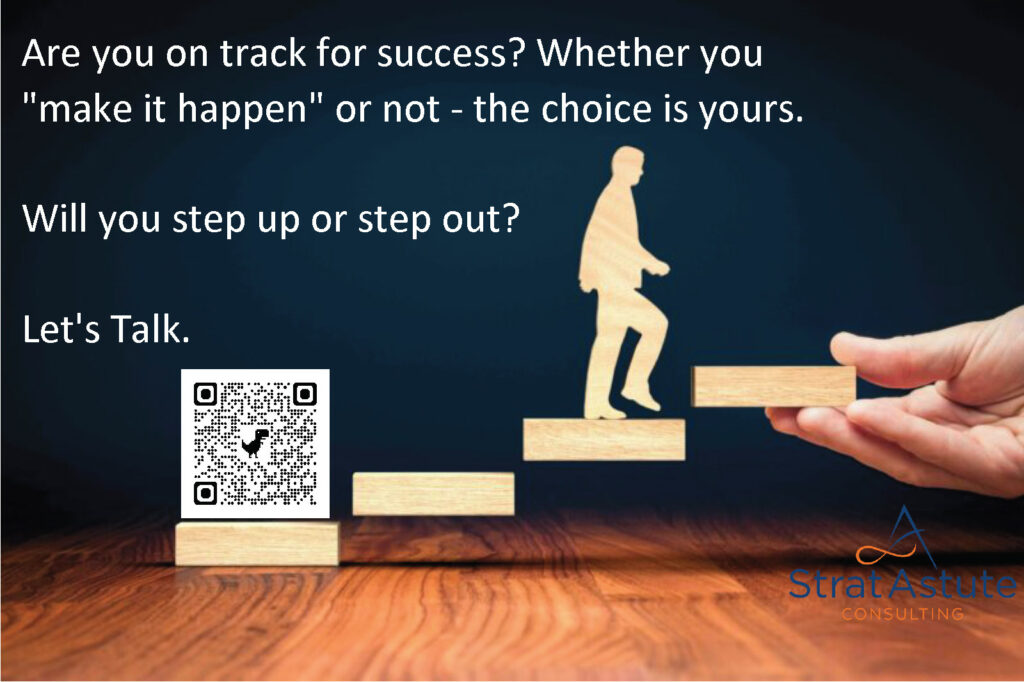
I choose to grow as a Resilient Leader. Let's Talk.
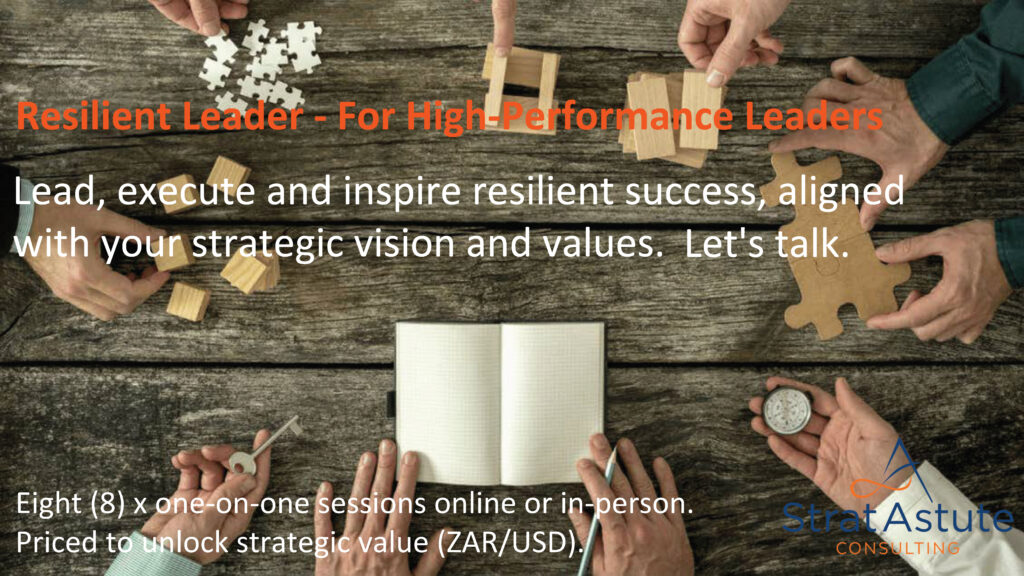
Ignite my Resilient Success potential. Let's Talk.
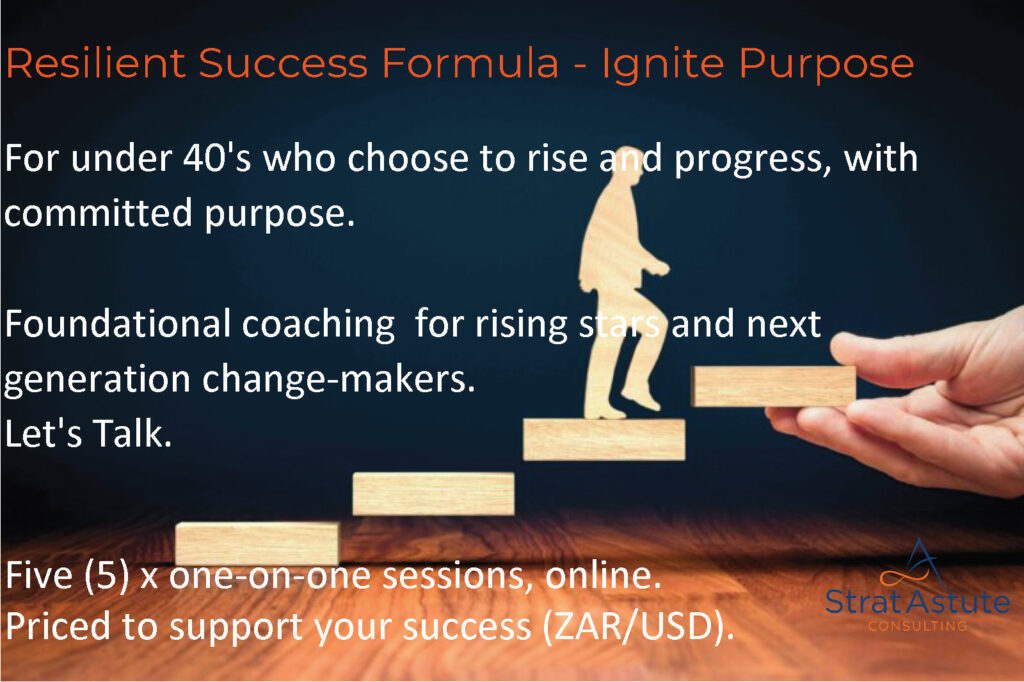
I opt for agile decision-making. Let's Talk.
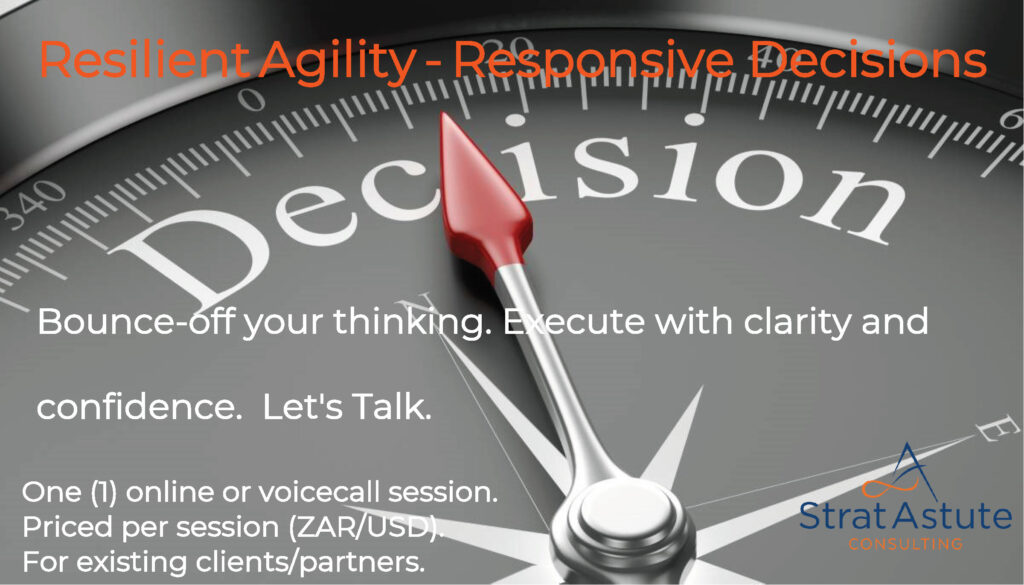
Some conversations shape us in subtle but transformative ways...
This week, a client reached out for a chat. Having "survived" the past four years despite the odds, he acknowledged his mental and emotional fatigue. He felt lost and scared. I shared a 2020 Lift As We Rise webinar/podcast re: the state of mental health - one which, unknown to me at the time, would shift my approach from one-and-done strategy consulting to enabling success.
Over my career, I have observed that even the most accomplished leaders and athletes go through phases of deep vulnerability. Global statistics report that 49% of entrepreneurs suffer from at least one form of mental health challenge during their careers. Researchers at San Francisco University found that founders of start-up business are driven by the "no pain, no gain" theory and are twice as likely to experience depression, be admitted for psychiatric disorders or have suicidal thoughts and six times more likely to have ADHD. Digitisation and virtual reality are likely to increase mental health risks - the World Health Organisation warns of this.
Everything in life has a trade-off. As South Africans, we are damn proud of our resilience - the "just get on with it" culture can become a hard armour and beneath, unhealthy consequences can fester - physically our health slides, mentally our motivation slips, emotionally we become disconnected or dissociate, relationally/socially we stop showing up, and financially, we are less abundant. This attracts negative experiences and situations, because we become hyper-alert to danger, the cortisol rises and stress modulators short circuit, compromising decision-making and judgement. In SA, one in three people will be challenged with a mental health disorder.
Wherever you are at at this point in 2024, become aware or more aware of what the inner voice is saying. There are plenty reasons and valid distractions to ignore it, postpone it, hoping that it will go away. That is denying yourself the chance to thrive. Rise above the resistance, take action, then success will come. When you've done that, lift others around you because only then, can we thrive sustainably.
Success is a feeling. Own it, nurture it and invest in growing it. Switch it on and make it shine bright.
StratAstute Consulting offers Resilience Success coaching for decision-makers, professionals and rising stars in business, sports and healthcare. Our coaching programmes include optional resilience analysis and evaluations. Let's Talk.
Momodou Ceesay, Deputy Head of Engineering, Construction and Building Services and STEM Ambassador, speaks about STEM education in the UK, Brazil and prospects for bright young minds who aspire to succeed in motorsport.
Listen to the conversation on YouTube.
Ready to Play Your Part as a school, team. sponsor or volunteer? Let's Talk.
I have been asked this question by a good few people who leave safe harbours in pursuit of Purpose...
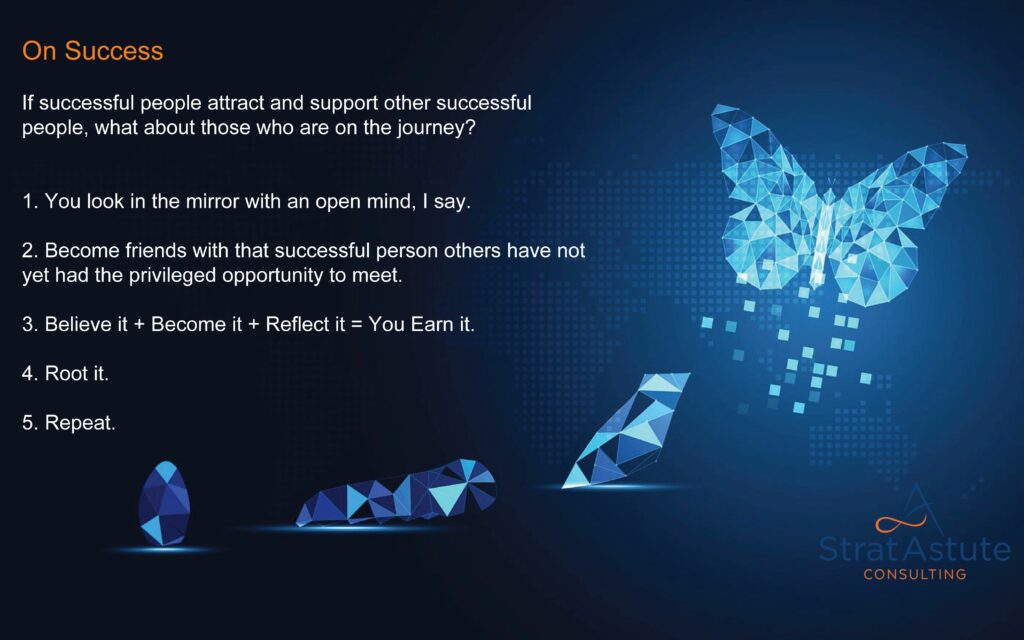
As I type, I am grappling with the unintended ripples of a recent delicate, in-person conversation with an acquaintance. I shared a suggestion that was intended to encourage but instead, was received as being condescending, evoking some anger and hurt. On reflection, perhaps an empathetic listening ear was all the person needed that day. So often we express a perspective, without being fully aware of where someone is at on the textured spectrum of immunity and vulnerability.
Had this been an online conversation, the flow of human chemistry and rapport would have been detached from the start. Yet social media platforms are the new public square that connect billions of users who are geographically spread and socially diverse. Everyone has a voice to exercise freedom of speech online, from leaders, influencers and brands to the unidentified sensation seeker, even if what gets posted undermines or infringes someone else’s human rights. There are no norms and very few filters - insults and hostile messages flow freely, leading to the misuse of social media to spread violent messages and aggressive comments, using offensive language and hurtling hateful speech towards people and groups who represent “the other”. Consistent content moderation is a challenge, but not an excuse.
Social media companies are not playing ball to limit the damage, electing to prioritise profits above people. In 2021, the Facebook Files exposed the lack of online safety controls that placed peoples’ lives and young users’ mental health at risk, with mention of vulnerable communities in Africa. Research reveals that 80% of European Union (EU) citizens have encountered hate speech online, discouraging engagement. Regulators and social media platform owners are at loggerheads. Legislators in the EU and UK are norming. Guidelines and legislation in South Africa are forming. Meanwhile boardroom leaders are staying in their own lanes, fast-tracking digitalisation.
Online abuse in sport is on the rise, with many athletes, employees and volunteers being pinged with threatening, abusive or rude social media messages, termed “flaming”. Healthy competition and victorious results can unite and inspire like the Boks have done for SA. On the opposite end, fanatical rivalry and defeat can over-heat to hate, with or without socio-political undertones. Elite athletes are prime targets of online abuse, irrespective of good or bad performance. The see-saw of applause and abuse gets usurped by online trolls, mostly using anonymous profiles to side-step accountability. The bottom-line is that athletes will leave the sport and fans will lose interest if nothing is done.
Survey trends indicate that more than 40% of professional English football players have experienced abuse on X and 20% of players in the 2023 Women’s World Cup reported social media abuse. The Mbonambi/Curry racial allegation incident proved that language diversity adds complexity, with World Rugby expressing its concern at the level of online abuse directed at both players. Tennis and cricket players too are calling out the online onslaughts they receive from fans. Cyber bullying is rife in e-sports and online gaming, while a criminal element in legalised online sports betting has compelled FBI intervention to protect the lives of targeted US college football players. At the pinnacle of motorsport, Formula One's online reach is growing at speed but with a downside drag. The 2022 "Drive It Out" video campaign called for greater respect to protect driver safety and well-being, following online attacks against seven times World Champion, Lewis Hamilton and former Williams driver, Nicholas Latifi. President of the Fédération Internationale de l'Automobile (FIA), Mohammed Ben Sulayem, reached a point of zero tolerance after female race steward, Silvia Bellot, received numerous online death threats in reaction to her controversial post-race penalty decision. The red flags are up and yes, sports leaders are on guard.
Online toxicity in sport has reached a crisis point and international sports federation administrators are at a pivotal choice point. Online abuse and online hate, in the form of racism, misogyny, sectarianism, bullying and other, dampen the spirit of fair play and must be eradicated urgently to sustain prosperity in sport. Elite athletes and experienced employees represent high-value human capital - constant exposure to online attacks threatens psychological safety, a building block for high performance cultures. Weak governance of online abuse will dilute stakeholder confidence, compromising the overall value proposition in sport. The game is on to prevent this.
Spearheaded by the FIA, the United Against Online Abuse (UAOA) is a global, multi-stakeholder coalition aimed at steering the way forward to tackle all forms of online hate speech in sport, in consultation with governments and NGO’s. With a privileged seat on the UAOA research panel, I aim to make a positive difference through generation of evidence-based research that informs responsible and efficacious combat strategies. In parallel, to engage with national sports federation leaders and affected athletes in South Africa, and interested counterparts in the southern hemisphere, to discuss, understand and raise an awareness on this topic. The FIA and Motorsport South Africa have pledged their green light of support. For shared success, the circle of committed collaborators will need to get bigger so that sport continues to, as Madiba said, “…unite people in a way that little else does”.
Circling back to my earlier reflections, I was reminded that human connections are inherently fragile in a turbulent world, requiring mindful calibration, conversation-by-conversation, chat-by-chat, post-by-post. In person or online, say it with human kindness.
Roshni Gajjar is the Founder and Managing Director of StratAstute Consulting specialising in strategy consulting, resilient success coaching and a director of Future Ones NPC which promotes educational STEM programmes fit for motorsport and allied industries.